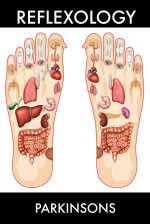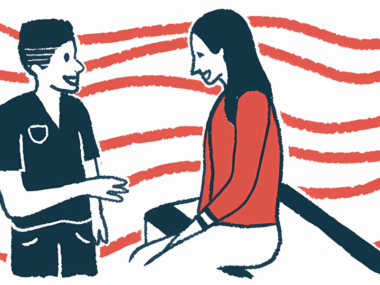My Self-management Toolkit Helps Me Steer Parkinson’s Disease
Written by |

Neo, my friendly brain conversationalist who engages with Mrs. Dr. C, inquiries about the Parkinson’s disease (PD) self-management toolkit. “It seems overwhelming.”
Mrs. Dr. C suggests, “Would a review of the ideas, one by one, help?”
Neo nods and gets comfortable. “I’ve read all the columns, but I do lose track of everything that helps Dr. C.”
Mrs. Dr. C explains, “Parkinson’s brain is a noisy, intrusive pest. We can’t stop Parkinson’s, but we can steer it, making it less noisy and less intrusive. No one tool is more important than another, but we try to apply each one every day.”
Stretching and exercise
Dr. C’s exercise program focuses on movements with a mindful focus. Mrs. Dr. C admits, “It can be a challenge to motivate him to move past the Parkinson’s hesitation and apathy. On bad days, simply stretching — or doing any type of activity — is an accomplishment.”
CHRONDI Creed
“Both of us try to follow the CHRONDI Creed, and not only in steering Parkinson’s,” Mrs. Dr. C says.
C – Compassion: Act compassionately toward ourselves and others.
H – Happiness: Seek happiness that is not material in nature.
R – Rehabilitation: Apply courage to fighting Parkinson’s.
O – Others: Communicate our experiences and maintain an attitude of gratitude.
N – Nature: Take time to embrace nature.
D – Death: Find the courage to face loss in our lives and not let it control our thinking.
I – Individuality: Express our individuality and our purpose.
“I suppose you could say the CHRONDI Creed is our foundation,” Mrs. Dr. C says. “Built on that foundation are more specific tools.”
TBM: Relearning everything
Neo observes, “Using TBM in daily practice sounds difficult. The work of threshold management (T), brain retraining (B), and mindful movements (M) sounds like a full-time job.
“Does every muscle movement have to be relearned?” Neo asks.
“It seems that all the simple movements are not so simple anymore,” Mrs. Dr. C replies. “He needs to consciously think before eating, swallowing, talking, or placing his feet when he’s in motion.”
“That’s exhausting,” Neo despairs.
“It is, but without it even simple movements become a safety concern,” Mrs. Dr. C says.
Support partnership
“The best contribution I can make to the toolkit is the support partnership.” Mrs. Dr. C adds, “It’s a mutually agreed-upon relationship that we both comfortably fit into and enjoy. That’s not to say there are no unpleasant tasks or challenges, but we agree to face them together.”
Engage the mind for lucid days
Neo asks, “Does Dr. C sometimes have problems thinking clearly?”
“Dr. C will have days with the ‘beast’ when everything seems muddled in his mind,” Mrs. Dr. C admits. “Then there are lucid times when thoughts about writing, plans for the garden, or everyday problem-solving seem to flow effortlessly. We can’t stop the bad days, but we try to steer our lives to manage them.”
Maintain homeostasis
“There are many things that can upset the body-mind homeostasis. Managing stress is a team effort. We spend time most every day checking in with each other, being available for each other, and staying calm and mindful,” Mrs. Dr. C says.
Neo surmises, “It must be difficult to show up every hour of every day to do the mental, physical, and relationship work necessary to steer Parkinson’s.”
“Yes,” Mrs. Dr. C agrees. “It takes courage, determination, patience, and compassion to help maintain equilibrium.”
Cultivate sacredness
Neo has observed Dr. C has more pain, more motor and nonmotor problems, and increased difficulty processing emotions, particularly in stressful situations. He asks, “Is the battle with Parkinson’s disease getting more difficult?”
“He is steering PD as well as possible because of his meditation practice,” Mrs. Dr. C says. She adds, “It’s not a cure. It’s just learning how to live in ordinary calmness while having Parkinson’s.”
Manage the well of resources
Neo says he likes the mental image of the well of resources. Mrs. Dr. C agrees, “It’s his internal fuel tank for mental and physical energy. With self-management, the well doesn’t run dry, the symptoms are quieter, his outlook improves. He can be drained even under the best of circumstances, such as being with family or going out on the town. It’s a challenging thing for loved ones to understand.”
Play: Lightness of being
“I’ve seen you and Dr. C have found that taking play breaks helps your search for innovative approaches,” Neo says.
Mrs. Dr. C responds, “Lightness of being is a way to wake up and face the day differently. We call it ordinary calmness.”
“I think I see how you can steer Parkinson’s,” Neo concedes. “You just can’t let it highjack your life.”
Note: Parkinson’s News Today is strictly a news and information website about the disease. It does not provide medical advice, diagnosis, or treatment. This content is not intended to be a substitute for professional medical advice, diagnosis, or treatment. Always seek the advice of your physician or another qualified health provider with any questions you may have regarding a medical condition. Never disregard professional medical advice or delay in seeking it because of something you have read on this website. The opinions expressed in this column are not those of Parkinson’s News Today or its parent company, Bionews, and are intended to spark discussion about issues pertaining to Parkinson’s disease.







Mike
When I received my diagnosis I felt like maybe slipping away was inevitable. Now (2 years later) I have come to realize that there are innumerable resources that can help me to stay sharp even improve my cognition. When your book Possibilities with Parkinson’s arrived I had a resource that I could pick up daily. I try and practice TBM consistently. Your book helps me with Brain Retraining, Mindful Movement is a part of my life always. Dr. C it is admirable that you muster the effort to stay consistent. I feel so lucky that at 65 I was able to find resources both informal and Professional that have kept me going usually. Blessings, Mike
Dr. C.
Hi Mike ~ The ideas in this column are expanded upon in the next book, "Possibilities with Parkinson's: Developing a Self-Management Toolkit". Hope it finds a place in your library!
Dr. C.